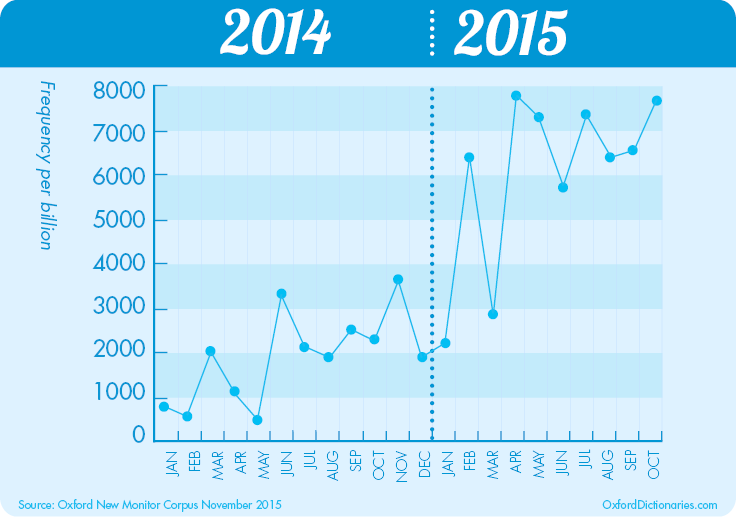
It’s that time of year again. No, we’re not talking about Thanksgiving dinners or Black Friday shopping. We’re talking about the time of year when the Oxford Dictionary crowns the Word of the Year!
Oxford Dictionary does not require its Word of the Year to have been coined within the last 12 months, but it does need to have become prominent or notable during that time. Some winning words from past years include vape, selfie, unfriend, and podcast. Though several publications choose a Word of the Year, it seems to be Oxford Dictionary’s choice that always stirs up a discussion, as it did again this year. For the first time ever, the Oxford Dictionary’s Word of the Year isn’t actually a word—it’s an emoji. The “face with tears of joy” emoji has been selected as the 2015 Word of the Year and it is leaving people scratching their heads.
According to the Oxford Dictionary, the definition of “word” is: a single distinct meaningful element of speech or writing, used with others (or sometimes alone) to form a sentence and typically shown with a space on either side when written or printed. Nowhere does it state that words must be comprised of letters, so technically the “face with tears of joy” emoji meets the criteria.
According to the Oxford Dictionary, the reason behind how and why they made this decision boils down to a partnership with a mobile technology company. Together, the two companies explored the usage statistics of emojis around the world. The winning emoji made up 20% of all emojis used so far in the UK in 2015, and 17% in the US, and even though the word emoji has been around since 1997, its usage has more than tripled this past year.

Some of the spike in usage could have something to do with the fact that it has been adopted as a cultural normalcy and embraced as a nuanced form of expression, so much so that even big brands are using them as a way to speak to consumers. In 2015, several large brands, including McDonald’s, Chevrolet, WWF, Dominos Pizza, and Ikea all used emojis as part of their marketing campaigns.
What do you think about Oxford Dictionary’s choice for 2015’s Word of the Year? We’d love to hear from you!
